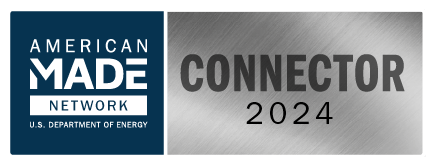AdamaDOLL is revolutionizing the way that social workers build relationships with children who have been abused. These recent inductees into the Koffman Incubator Accelerator program are actively developing their business with the goal of helping children in need.
Founded in January of 2018, AdamaDOLL was created by Hazell McKenzie and Zuhri Outland, social workers who want to make the disclosure process easier for children who have been abused. Aiming to decrease time spent building rapport and increase data accuracy, they created a doll that works as a diagnostic tool by recording conversations with children.
Based on their experience and research, McKenzie and Outland learned that children who’ve been abused by adults have a difficult time trusting adults in order to disclose information. To solve this issue, the AdamaDOLL team developed a doll that is less intimidating than an adult, allowing traumatized children to build trust quickly, conveniently, and effectively.
The dolls have recorders that can record up to two weeks of conversation, which can later be downloaded into a transcript. By extracting this information more efficiently, social workers would be able to decrease the number of interviews that the children have to participate in.
Making the process more comfortable for the children will also increase the accuracy of the information collected. Through this information, social workers can assist therapists in developing effective therapy plans for young boys and girls ages 3 through 12 who have been traumatized due to sexual abuse.
Working under Dr. Miesha Marzell, an assistant professor for Binghamton University’s College of Community and Public Affairs, McKenzie and Outland are currently developing AdamaDOLL through the Koffman Incubator Accelerator Program.
Working with Binghamton University’s Office of Entrepreneurship and Innovation Partnerships, AdamaDOLL is striving to perfect their concept and business plan.
“We take every possible opportunity that is presented to us through the office of entrepreneurship,” McKenzie said. “Funding is one of our major challenges, but through the office, we were made aware of different programs where we may apply for funding and we have utilized those opportunities.”
A National Science Foundation I-Corps class also helped AdamaDOLL refine their goals. I-Corps short-courses are a National Science Foundation funded course that provides guidance and funding to researchers with the goal of performing customer discovery and validating customer markets for a product or service.
“The information we received at the class was incredibly valuable,” McKenzie said. “We were given the tools and techniques necessary to envision a successful business and product in the future.”
After attending the I-Corps sessions, AdamaDOLL is now working towards their goals with a clearer vision in mind.
“As social workers we are bound by a code of ethics, our desire is to create a company that is effective and reliable and produce positive outcome for children impacted by sexual abuse,” McKenzie said. “We see this diagnostic model being adopted by different populations and practices nationwide and even internationally.”



